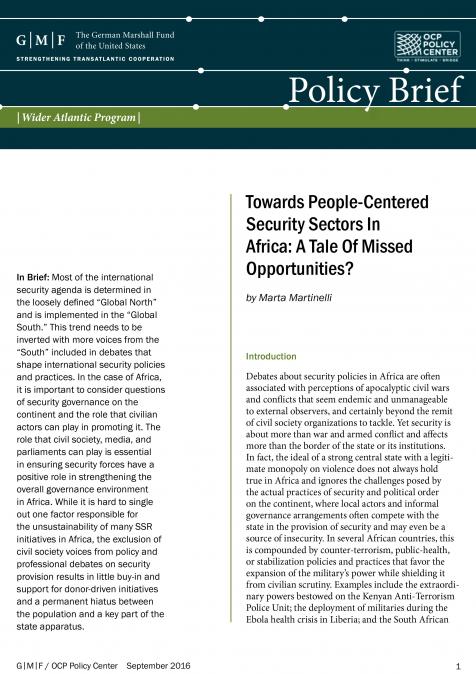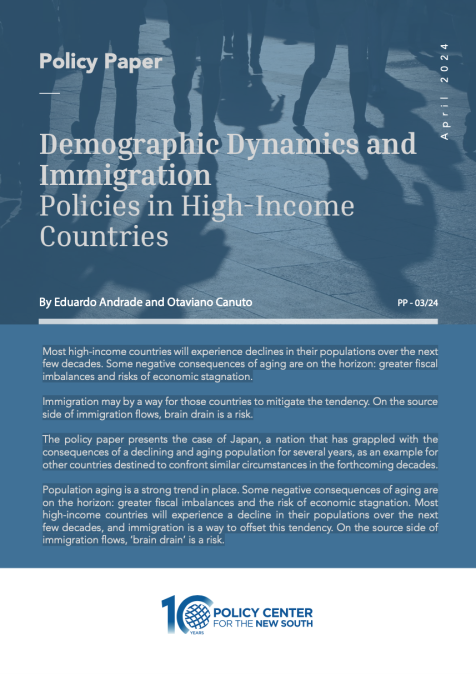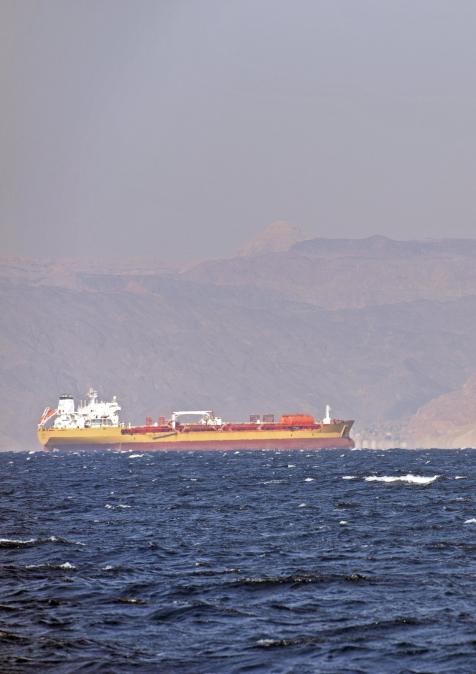Publications /
Policy Brief
Most of the international security agenda is determined in the loosely defined “Global North” and is implemented in the “Global South.” This trend needs to be inverted with more voices from the “South” included in debates that shape international security policies and practices. In the case of Africa, it is important to consider questions of security governance on the continent and the role that civilian actors can play in promoting it. The role that civil society, media, and parliaments can play is essential in ensuring security forces have a positive role in strengthening the overall governance environment in Africa. While it is hard to single out one factor responsible for the unsustainability of many SSR initiatives in Africa, the exclusion of civil society voices from policy and professional debates on security provision results in little buy-in and support for donor-driven initiatives and a permanent hiatus between the population and a key part of the state apparatus.









